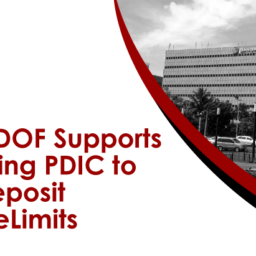
BSP Anticipates New Bill to Replace Agri-Agra Law in the Philippines
The Bangko Sentral ng Pilipinas (BSP) expects the revoke of the agri-agra law as the Bicameral Conference Committee in Congress recently approved a new bill that aims to improve financing for the agri-fisheries sector and rural development.
BSP noted that the proposed Agriculture, Fisheries and Rural Development Financing Enhancement Act of 2022 will soon be passed on to Malacañang for the President’s signature, and is anticipated to unlock credit for the agricultural financing ecosystem and for the needs for the development of the rural community development.
Republic Act No. 10000 or the Agri-Agra Law requires all government and private financial institutions to allocate at least 25% of their total loanable funds for agriculture and agrarian reform beneficiaries (ARBs).
Specifically, 15% of the loanable funds must be allocated to the agriculture sector while 10% to ARBs.
BSP Governor Benjamin Diokno stated, “BSP has long pushed for the repeal of [RA 10000] to make it more responsive to the financing needs of farmers, fisherfolk and agri-based micro, small, and medium enterprises.”
Diokno noted that the revoke of RA 10000 goal is to further provide capacity to farmers and fisherfolk by modernizing their operations and integrating them into profitable domestic and export-oriented value chains.
Diokno expressed, “Expanding the available modes of compliance with requirements to finance the agricultural sector will promote funding for green finance projects, income-generating activities, and public infrastructure projects, to the benefit of the rural agrarian reform and agricultural sector.”
The new bill removes the difference between the 10% agrarian reform and the 15% agricultural credit. This is expected to give financial institutions more flexibility in providing credit to both agriculture and agrarian reform sectors based on their capabilities.
Moreover, banks that reach out to ARBs and agrarian reform communities will be able to designate the whole 25% mandatory credit quota instead of just 10%.
For now, banks that are unable to directly lend to rural community beneficiaries may donate through different means, such as investing in debt and equity securities, undertaking agricultural value chain financing, and granting agri-business loans to fund agricultural and community-enhancing activities.
Furthermore, the new bill boosts funding toward environmentally sustainable projects that will help alleviate the impact of climate risk on the agricultural sector.

















